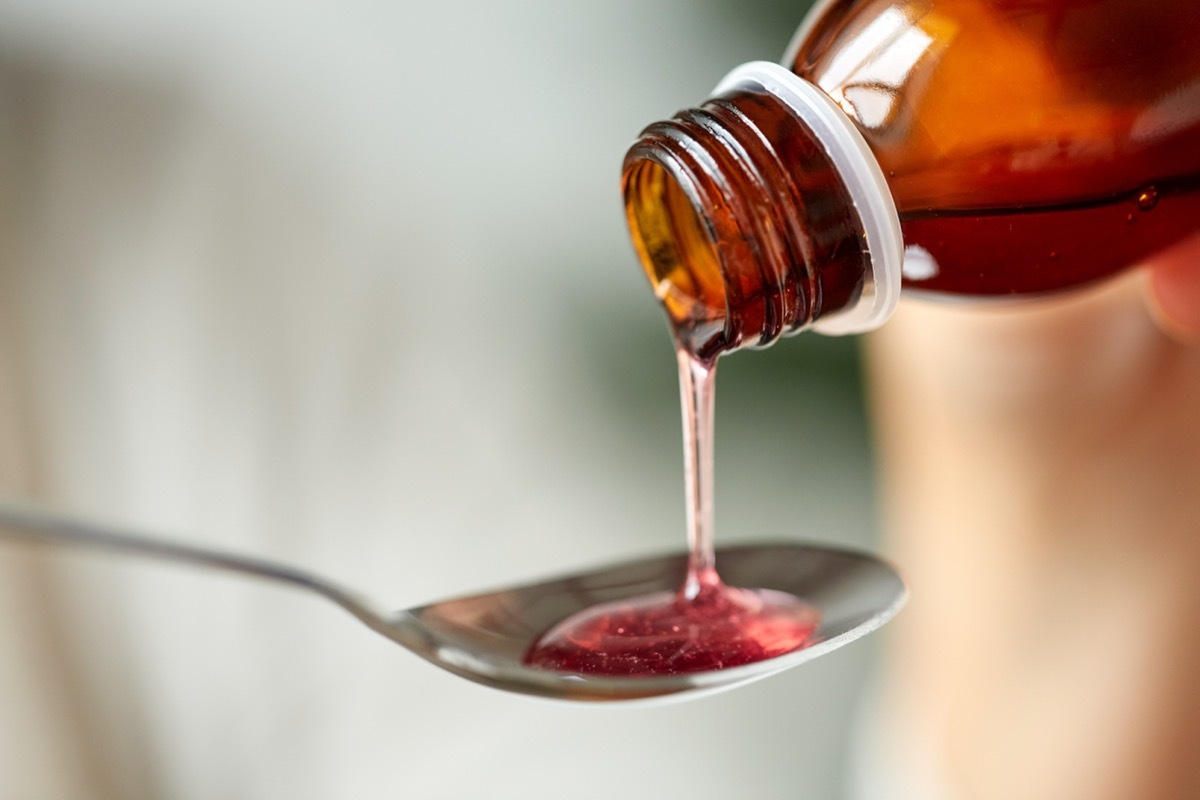Ang pagkuha ng otc cold medication ay maaaring ilagay ang iyong puso sa panganib
Ang mas ligtas na mga alternatibo ay maaaring makatulong sa slash ang iyong panganib ng problema sa puso.

From skipping that cheeseburger to walking an extra mile, we make countless calculations every day to increase our odds of better heart health. Yet experts say there's one thing you may be doing that could take a serious toll on your heart's wellbeing—and you probably don't know that it has an effect at all. The Mayo Clinic points out that there's one type of over-the-counter (OTC) cold medication which could be hurting your heart in several ways, and if you happen to have one particular cardiovascular condition, it's best to avoid it completely. Read on to find out which OTC medication could be putting your heart in danger, and what experts recommend taking instead.
RELATED: If You've Taken Tylenol With These Common OTC Meds, Get Your Liver Checked.
Peripheral arterial disease could be putting your heart health in danger.

Peripheral arterial disease (PAD) is a serious chronic condition that causes narrowing of the arteries. This happens as a result of atherosclerosis, a process by which fatty plaques build up inside of the arteries, resulting in poor circulation. The condition currently affects between eight to 12 million people in the U.S., according to the National Institutes of Health.
People with PAD often experience symptoms in their legs and arms, including pain, cramping, weakness, numbness, and more. However, it can also have serious implications for your broader health. Because the same fatty deposits that cause PAD can also cause blot clots, people with the condition are at heightened risk of limb amputation, heart attack, and stroke.
RELATED: Never Take These 2 Common OTC Medications at Once, Experts Warn.
Certain OTC cold medications may worsen your PAD symptoms.

There are several lifestyle factors that can worsen your PAD symptoms—tobacco use, maintaining a poor diet, and leading a sedentary lifestyle, to name a few. But there's one other lesser-known factor that could be putting you at risk—and it may be hiding in your medicine cabinet.
The Mayo Clinic says if you have peripheral arterial disease, it's important to avoid certain cold medications. In particular, you should be wary of "over-the-counter cold remedies that contain pseudoephedrine (Advil Cold & Sinus, Aleve-D Sinus & Cold, others)" which they warn "may increase your PAD symptoms." Certain allergy medications, such as Mucinex-D and Claritin-D, also contain pseudoephedrine.
Pseudoephedrine is known to increase blood pressure.

Pseudoephedrine works to ease decongestion by constricting the blood vessels in the nasal passages and sinuses, slowing mucus production. However, experts from the University of Virginia's health blog, UVA Health, warn that "those same constricted vessels might also increase your blood pressure and heart rate."
That's because "pseudoephedrine is chemically similar to adrenaline, so the body recognizes it as adrenaline, causing the blood pressure and heart rate to increase," pharmacist Kayla Ryan explained via the site.
If you're concerned about your heart health, there are alternative medications available that are made with ingredients that won't increase blood pressure. "If you're looking for a safe cold medicine for high blood pressure, consider Coricidin," UVA experts write. "Coricidin is an over-the-counter multi-symptom product marketed specifically for patients with altapresyon. It comes in many varieties and contains different active ingredients that target coughs, colds, chest congestion, and allergies."
For more health news sent directly to your inbox, sign up for our daily newsletter.
Experts suggest keeping a list of your medications handy.
 ae0fcc31ae342fd3a1346ebb1f342fcb
ae0fcc31ae342fd3a1346ebb1f342fcb
If you have a known case of peripheral arterial disease, Mayo Clinic experts say it's a good idea to keep a single running list of any medications, vitamins, and supplements you take, and to take note of the dosage for each. Relaying this information to your doctor can be especially valuable, since they may prescribe additional medication to treat the PAD itself, leading to a heightened risk of dangerous drug interactions.
PAD treatment often includes medications to prevent blood clots, lower blood pressure and cholesterol, control pain, and minimize other symptoms. Speak with your doctor or pharmacist if you're concerned about how your medications may interact—especially if you've taken pseudoephedrine-based cold medicines with a known case of PAD—and always be sure to read the labels on both prescription and OTC medications.
RELATED: If You're Over 60, Do Not Take This OTC Medication Every Day, Officials Say.

Ibinahagi lamang ni Ciara ang eksaktong plano ng pagkain na sinundan niya upang mawala ang £ 39

Disneyland kumpara sa Disney World: Alin ang tama para sa iyong paglalakbay?
